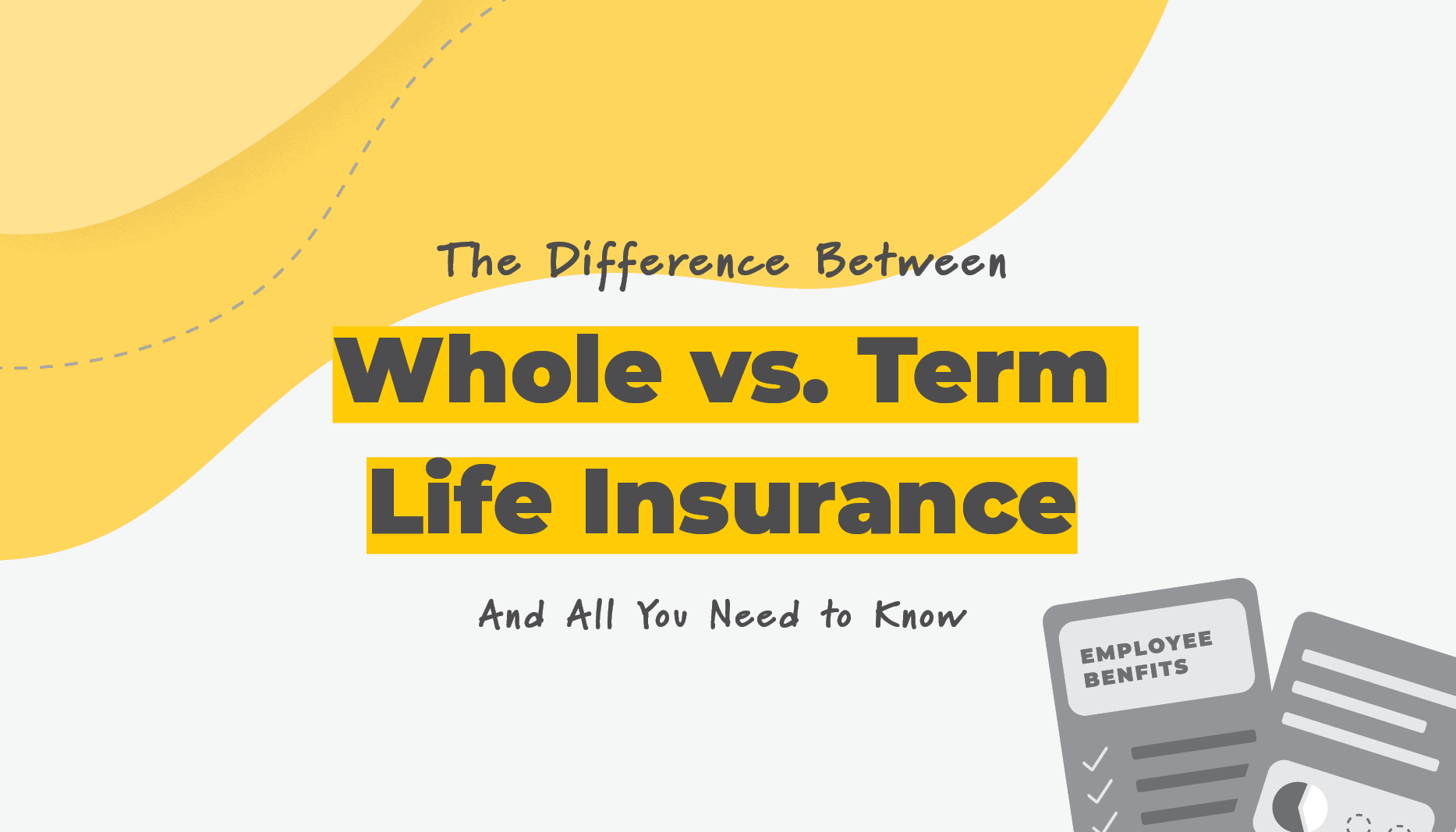The Difference Between Whole vs. Term Life Insurance
By: Benefits by Design | Tuesday June 8, 2021
Updated : Wednesday November 16, 2022
There are a number of different Life Insurance products available to Canadians. So much so that it can be unclear which is best for you, or even what the differences are. Today, we’re focusing on two types seen often in group insurance: Term Life Insurance and Whole Life Insurance.
Looking for more general information on Life Insurance? A Guide to Life Insurance
Term Life Insurance provides a benefit for a specified period of time, often expressed as a termination age. After which, coverage may be reduced or cease entirely, depending on plan design. Most group Life Insurance policies fall under this category, as do many Individual or Optional Life Insurance policies.
Premiums paid for Term Life are generally less expensive than many other types of Life Insurance. This is because the risk of a claim is lower, since the policy only covers a specified period of time.
What is Whole Life Insurance?
Whole Life Insurance, sometimes known as Permanent Life Insurance, provides protection until the covered person’s death. There is no termination age.
As a result, Whole Life premiums are generally more expensive than Term Life premiums. The Insurer knows they will eventually have to pay out the full benefit value of the policy. Therefore, premiums are based on the age the covered person becomes approved for coverage.
For example, a person who purchased a Whole Life Insurance policy at age 30 would pay less in monthly premiums than a person who purchased the same policy at age 50. Since these premiums do not increase over time, there are advantages to purchasing Whole Life Insurance earlier in life.
Did you know? As a concept, Life Insurance has been around for a long time, dating all the way back to ancient Roman times. Citizens would pool their money together to form “burial clubs”, which would pay for funeral and burial expenses, and even take care of surviving dependents.
What is the Difference Between Whole and Term Life Insurance?
There are a number of key differences between Whole and Term Life Insurance. Here are some of the main ones:
- Termination. Term Life Insurance offers coverage for a specified period of time, whereas Whole Life Insurance covers a person’s whole life, and is thus guaranteed to provide a benefit payout. Term Life Insurance can also be terminated other ways. For example, a person may lose their coverage under a group Life Insurance policy through an employer if they leave the company, whereas this would not be the case for a Whole Life policy, so long as premiums continued to be paid.
- Risk of a claim. With Whole Life Insurance, there really is no “risk” of a claim. A claim is guaranteed, because it covers a person’s whole life, and they will eventually pass on. With Term Life Insurance, a claim is not guaranteed, and thus an Insurer’s risk is reduced, because the likelihood of a claim being made during that specific time period is lower, and in fact, may not happen at all.
- Premiums paid. Whole Life Insurance is generally more expensive than Term Life Insurance, because a claim is guaranteed. With Term Life Insurance, the possibility exists that a claim will not be made at all. As a result, Insurers can charge less in premiums.
- Rarity in group benefits. Whole Life Insurance is more rare in group benefits than Term Life Insurance. A large factor in this is that employers are generally looking to provide Life Insurance coverage for active employees only. Group Whole Life policies would continue to cover employees who had left the company.
Should I Get Life Insurance?
Ultimately, the purpose of Life Insurance is to help those left behind after a loss of life mitigate the financial burden and possible debts that arise. Both Whole and Term Life Insurance achieve this goal, and the type of coverage that’s best for you will vary widely by circumstance.
There are many factors that play a role in the amount and type of coverage needed, such as age, lifestyle, and whether you have dependents. Generally speaking, Life Insurance is a viable benefit for individuals with dependents who rely on them to provide an income. For example, the need for income replacement for a 30-year old with a mortgage, car payment, spouse, and two children may differ from a fifty-five year old whose mortgage is paid off and whose dependent children have left the home.
This is not a hard-and-fast rule, but is a general guideline. Each individual’s situation is different and the only person who can truly know if they need Life Insurance is you!

